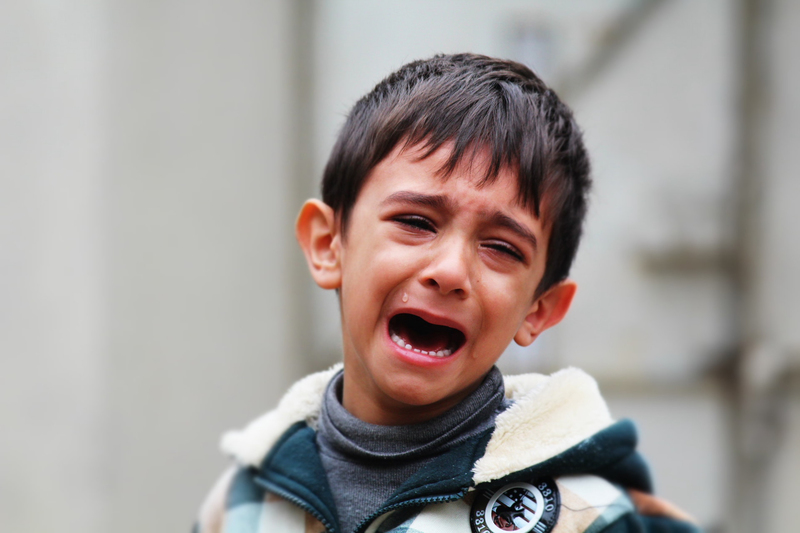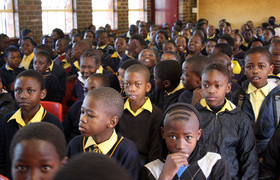Children’s Institute welcomes ruling on hitting children
20 September 2019 | Story Supplied. Photo Pixabay. Read time 5 min.
The University of Cape Town’s (UCT) Children’s Institute has welcomed the Constitutional Court judgment that says there is no justification for parents to hit their children in the name of discipline.
The reaction came in a joint press release from respondents and amici curiae in the case of Freedom of Religion South Africa v Minister of Justice & Constitutional Development & others [Children’s Institute (UCT), Quaker Peace Centre, Sonke Gender Justice, Centre for Child Law, The Parent Centre, Global Initiative to End All Forms of Corporal Punishment of Children, and Dullah Omar Institute for Constitutional Law, Governance and Human Rights].
The Constitutional Court was considering the constitutionality of the use of corporal punishment in the home, and declared the common law defence of “reasonable chastisement” to be inconsistent with the Constitution. The defence previously allowed parents to hit their children with the justification of corporal punishment being a form of discipline as a defence to a charge of assault.
“The court found that the right to be free from all forms of violence from both public and private sources includes violence in the form of reasonable and moderate chastisement,” the statement said.
“Furthermore, the court found that the right to dignity means that children are independent and autonomous rightholders who may not be subjected to shameful and undignified treatment.”
The judgment reinforced submissions by the Children’s Institute, the Quaker Peace Centre and Sonke Gender Justice, all represented by the Centre for Child Law, which underlined the high levels of violence against children and the link between corporal punishment and other forms of violence.
The statement said corporal punishment is one of the key drivers of the high levels of violence against children in South Africa.
“Recent findings from the Birth to Twenty Plus study … shows that 50% of younger children have experienced violence in the home, most often through physical punishment by parents.”
Violence in the home
“Recent findings from the Birth to Twenty Plus study – which followed more than 2 000 children in Soweto from birth to 22 years old – shows that 50% of younger children have experienced violence in the home most often through physical punishment by parents.
“In adolescence, the proportion of children who have experienced violence in the home increases to 83%.”
The parties also pointed to evidence showing that violence during childhood increases the risk for young boys to later become perpetrators, and for young girls to be victims in intimate relationships.
The court acknowledged the intergenerational cycle of violence, saying that South Africa has “a painful and shameful history of widespread and institutionalised violence”.
The statement said violence against women and children are inextricably linked, occurring in the same households and sharing the same drivers. But the groups stressed that the court ruling is only the first step in protecting children from physical violence in the home, and that “the real work begins now”.
Raising public awareness on the ruling is accompanied by momentum from the Department of Social Development to drive a national parental awareness campaign on positive discipline. This is not an alternative form of punishment: It avoids the use of punishment.
“Instead, it assumes that children want to behave well but need help understanding how to do so and that children learn best through cooperation,” the statement explained.
“We need programmes that have shown to be effective in changing both individual attitudes and social norms around child discipline.”
The groups added that South Africa also needs to focus on the implementation of widespread interventions to support families at a national level to change attitudes and behaviours that perpetuate the use of harsh and violent discipline of children.
“We need programmes that have shown to be effective in changing both individual attitudes and social norms around child discipline, and we need to teach caregivers about alternative, non-violent forms of discipline that can replace smacking and spanking.”
South Africa is currently finalising the National Strategic Plan (NSP) on gender-based violence and femicide, and the ruling also coincides with the passage through Parliament of the third amendment to the Children’s Act.
“The ruling today offers an opportunity for the Children’s Act to be harmonised with the Constitution and developed in such a way as to support parents better in the guidance that they provide to children,” the statement said.
 This work is licensed under a Creative Commons Attribution-NoDerivatives 4.0 International License.
This work is licensed under a Creative Commons Attribution-NoDerivatives 4.0 International License.
Please view the republishing articles page for more information.










